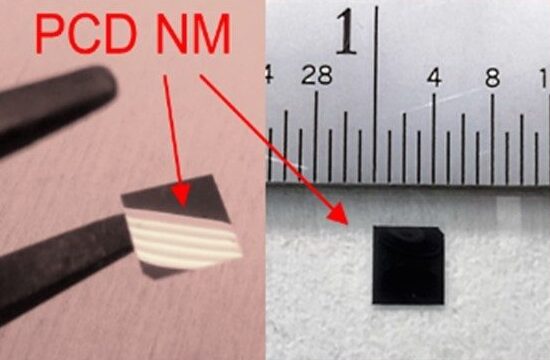Fraunhofer researchers use diamonds for fast-charging
Researchers at Fraunhofer USA have succeeded in developing wafer-thin nanomembranes made of synthetic diamond that can be integrated into electronic components, where they can reduce the local heat load by up to ten times. In this way, the driving performance and service life of electric cars can be increased. The charging time of the battery is also significantly reduced.
Currently, heat sinks are generally made of copper or aluminium plates, which have increased the heat-emitting surface of components that produce heat, thus preventing damage due to overheating. The researchers developed nanomembranes from synthetic diamonds which are thinner than a hair and can be integrated directly into components to cool the power electronics in EVs, which transfer traction energy from the battery to the electric motor and convert the current from direct current to alternating current.
The heat tolerance improvement then further has effects on the efficiency, service life and road performance of electric cars, as well as enabling higher charging speeds. According to the researchers, “the diamond membranes contribute to charging speeds that are five times higher.”
Creating the wafer is done by “growing the polycrystalline diamond nanomembrane on a separate silicon wafer, then detaching it, turning it over and etching away the back of the diamond layer.” The final result is then a free-standing, smooth diamond that can be heated at a low temperature of 80 degrees Celsius and subsequently attached to the component
“We want to replace this intermediate layer with our diamond nanomembrane, which is extremely effective at transferring heat to the copper, as diamond can be processed into conductive paths,” explained Dr Matthias Mühle, head of the Diamond Technologies group at the Fraunhofer USA Center Midwest CMW. “As our membrane is flexible and free-standing, it can be positioned anywhere on the component or the copper or integrated directly into the cooling circuit.”





0 Comments